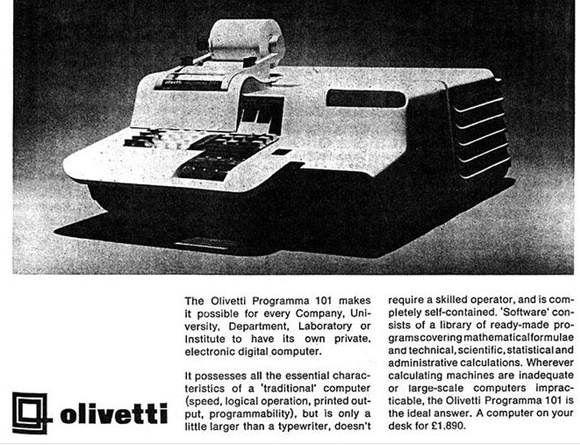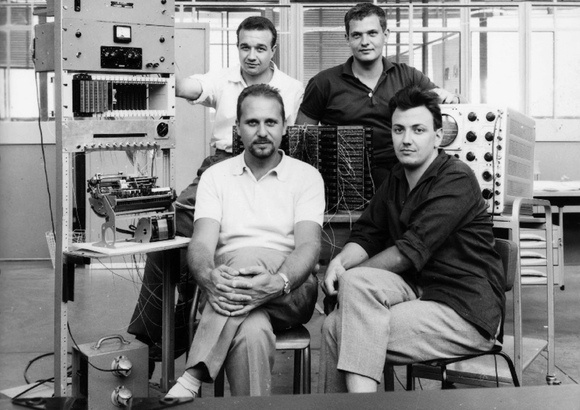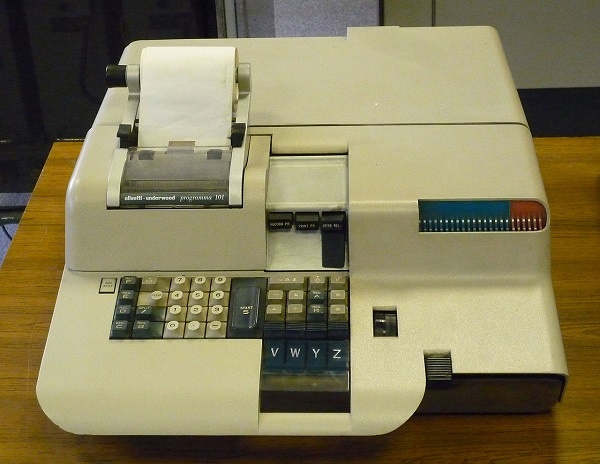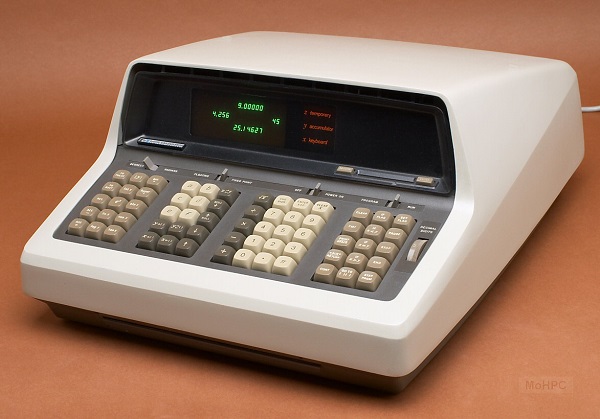Launching a product is kind of like the moment of truth of a company. It is the moment to face the capricious consumer. A moment that has changed the development of many projects, for better or for worse.
Business history is full of great stories of pioneers who launched a new product that revolutionized the world. Not so famous are stories of great failures. And even less famous are the stories of dull products; those that, without being a major failure, went through the market without shame or glory.
With this post, we start a series dedicated to those who bear this burden in a company: product managers. With this purpose in mind, we will gather inspiring stories that will teach us what has characterized successful and failed launchings. These are human stories that go beyond the world of marketing.
I thought it would be a really good idea to start with the story of a remarkable, now forgotten, product. One of those that revolutionized society and that was launched under the most difficult conditions: the story of Olivetti’s Programma 101.

Computers from the 60s
Ok. Picture this. It is the 60s. The first computers had appeared during WWII to calculate ballistics and crack encrypted messages. That idea had created an industry during the 50s60s, controlled by North American companies. It was the industry of the big computers that took up entire rooms with closets full of components. IBM was the reference in the sector.

Computers were really far away from ordinary consumers. They even instilled a little bit of fear. SciFi stories from back then were about powerful computers with the ability to one-day control our lives (maybe they were not that far off, actually.)
Olivetti, a different company
Olivetti was founded in Italy by Camilo Olivetti as a typewriter factory. However, in 1933, Olivetti becomes a unique company thanks to the founder’s son, Adriano Olivetti. Adriano is a modern representative of the long Italian humanist tradition. He conceives his company paying great attention to the development of technology, innovation, product quality and design. From the beginning, he shows high sensitivity for the company’s social dimension, taking care of his relationship with his employees and with the territory where its activity is developed. The Olivetti family was one of technology and innovation enthusiasts, a sort of utopic society.
Adriano has the feeling that technology should conquer households too and invests heavily in an unheard of R&D department in a time when Europe was recovering from the devastating effects of WWII. Olivetti sets up a research laboratory with over 400 staff members and an exceptional environment, according to the engineers themselves.
“We found ourselves in an environment with a vast amount of knowledge at our disposal. I believe things grow in fertilized land, in a breeding ground. And in a superb breeding ground, eventually something sprouts. It is physiological thing, a natural thing, nature is like that.”
It is at this time that Olivetti launches Elea 9000, the first European calculator big enough to match up the North American industry. And yes, it is born in a factory in the north of Italy, a unique and privileged region in the world able to combine Latins’ good taste and creativity with Northern Europe’s rigor, engineering and innovation. The cradle of FIAT, Pirelli and major design brands.
The project
Olivetti suffers a major blow in 1960 when Adriano dies. His son Roberto gives continuity to his dream and throws out a challenge for engineers: creating an unprecedented computer, different to the major computers from that time, a computer within anyone’s reach.
He commends Pier Giorgio Perotto for this task. In 1962, Perotto embarks on an unthinkable project: creating a smaller computer that could be used by a nonspecialized user. It had to be offered at a reasonable price so that anyone could have one on their desk. Originally, they only had an abstract idea, but they could not even begin to imagine to where it would lead them. Perotto was sure about one thing, though: they had to create that product in order to convince the company of its launching, because it was something so disruptive that they could not even explain it.

The product
The engineers faced colossal challenges without any reference of where to find inspiration. How can one create a small computer when the starting point is rooms full of IBM components? Just to show you an example, the “memory” of computers back then were gigantic noisy devices, so the engineers developed a radically different new system called magnetostrictive delayline memory. Since they could not develop the existing technical solution, they had to find a new way. Being so far away from their idea allowed them to look at the challenge from an original point of view.
From these new technical solutions, Olivetti created a perfect product. They worked hard on usability. They created their own programming language that could be understood by anybody. The instruction manual of the Programma 101 was a true marvel that allowed everyone to use a computer, even a child. Obviously, the easier it had to be for the user, the harder it was for engineers.
And what about design? The Programma 101 had to lay on a desk, in an office environment or even at home. It could not have a sloppy appearance. The result was a true museum piece. It elegantly displayed three keypads (numeric, operating and access to memory.) Results were viewed through an integrated microprinter (without a screen) similar to those of a current point of sale’s terminal. It had two lights that indicated when it was processing and when it was available to receive instructions. The programming could be stored in magnetic cards, forerunners of what would then be sloppy disks.

Olivetti could be considered as the Apple of the 60s due to the extra attention they paid to their products’ design, following the purest Italian tradition.
Perseverance
Every good story has a dramatic moment. Olivetti enters a financial crisis halfway through the project. Big Italian family companies take over the company and decide to sell the computer division to General Electric. The Programma 101 missed the sale thanks to an employee who one night modified the internal classification of the product from “computer” to “calculator” in all company records.
Olivetti’s small team kept working hard on its baby in a building that was already being run by General Electric, thus leading to really uncomfortable situations. They worked without the support of the new board of the company, which decided to focus their efforts on the product line of typewriters. In the words of one of the four engineers involved in the project:
“From that moment on, you could tell Perotto was in a hurry (…) We have to build the product first, otherwise, someone from the outside is going to come and steal our idea. But the problem was ‘we have to build this product, otherwise, an uncultured bastard is going to find out we are doing this, and this uncultured bastard could be somebody from up there, and decide the best thing to do is to cancel this program.’”
The new chief agrees to finish the project despite his lack of faith in it, without understanding the treasure he has in hand. His famous words were:
“We do not expect to do much with this project, in my opinion it is unnecessary. And the fact that nobody has built a product like this ever before is proof.”
What a visionary… What a display of spirit of innovation.
The presentation
Despite all obstacles, in 1964, the Programma 101 was born thanks to the unshakeable faith of a team of engineers inspired by a visionary, Roberto Olivetti. The product is presented in New York’s universal exposition. The whole exposition revolved around big computers, like those of IBM, which must be hidden because of their big size.
The Programma 101 plays a secondary role for the company, behind their new star mechanical calculator. It is presented as a prototype of what Olivetti could have managed to achieve. However, the Programma 101 quickly eclipses everything around it. They show how their new invention can calculate a satellite’s orbit in two seconds in front of the audience. People are fascinated by that machine capable of performing complex programmed calculations, a machine that could be seen and touched, you could have it on your table.
Attendees saw what bureaucrat managers had not seen: a new product category had been born, the personal computer, 15 years before Steve Jobs and Bill Gates began their business ventures.
Success and legacy
Over 40,000 units of Programma 101 were sold. It was even used in schools for learning purposes and both NASA and the Army used it for different purposes, calculating routes for the Apollo XI mission among them. It was a complete and unexpected success, a real slap in the face to North American industry from an Italian typewriter factory…
Reactions did not take long. HP bought 100 units of Programma 101 to subsequently sell its own personal computer, the HP9100, which was more powerful and had a builtin screen. The race that has taken us to PCs, laptops, smartphones, and everything else still to come, had begun.

Lessons to learn from this story
- The spirit of innovation comes from management, from a leader. But once it is implanted in a company’s DNA, it is not easy to eradicate and it represents a valuable asset. Marketing departments should listen to their development teams and pay attention to the ideas that are born there.
- A disruptive product requires audacity and perseverance. One cannot aspire to create something really new without taking risks.
- Focusing on the consumer normally pays off. There are always advantages when it comes to bringing an innovative technology (usually complex) to the general consumer.
- Attention to detail is key. Olivetti’s team understood that having a computer at home had to be something beautiful.
- The fact that nobody has ever done something before is not a logical reason not to do something.
A documentary
I recommend you watch the following documentary about this story.
[youtube]https://www.youtube.com/watch?v=lux17f4pbYA[/youtube]




